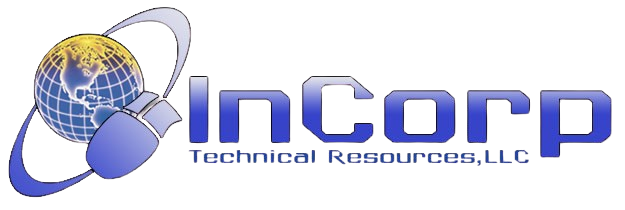Why Staffing Agencies Are a Smart Choice for Growing Companies
Why Staffing Agencies Are a Smart Choice for Growing Companies Home Blog Growth brings opportunity, but it also brings pressure. As demand increases, so does the need for the right people in the right roles fast. Delayed hiring can stall progress, while rushed decisions often lead to costly missteps. For companies scaling quickly, finding reliable talent without overloading internal teams becomes a balancing act. Partnering with a staffing agency offers a streamlined path forward, helping businesses stay focused, agile, and competitive. Understanding Staffing and Its Business Value Staffing refers to the process of identifying, recruiting, hiring, training, and retaining the personnel a company needs to operate effectively. It ensures that the right people are placed in the right roles at the right time. Staffing isn’t just about filling job openings but building a productive, flexible workforce that aligns with a company’s goals. Staffing can be handled internally by HR teams or outsourced to a staffing agency specializing in sourcing and placing talent quickly and efficiently. This approach benefits growing companies, seasonal hiring, or roles requiring specific skills. How Staffing Support Fuels Business Expansion Hiring isn’t just about filling roles but about sustaining progress. As businesses grow, they need systems that scale with them. Relying solely on internal teams can strain resources and delay results. Staffing support offers a faster, more innovative way to meet workforce demands without compromising quality. Strategic Staffing Keeps Companies Agile Growth brings new challenges, especially when demand spikes fast. Delays in hiring can hold teams back and derail progress. Companies need quick access to skilled professionals who are ready to step in. Staffing solutions make this possible with flexible, responsive service. Speed Meets Precision in Hiring Hiring in-house often takes longer than anticipated. From posting jobs to filtering resumes and running interviews, the time cost adds up. Staffing firms reduce that time dramatically by offering pre-qualified candidates ready to go. These agencies understand which roles require immediate attention and move fast to meet those needs. Their access to vetted talent pools ensures you don’t sacrifice quality for speed. Fast doesn’t mean careless; it means targeted efficiency. Flexible Talent Models Support Dynamic Needs Business doesn’t always move in straight lines. Seasonal work, one-off projects, or unexpected client demands can throw hiring plans off course. Staffing agencies offer flexible solutions, such as contract, temporary, temp-to-hire, or direct placement. This model allows companies to scale teams up or down with minimal disruption. Additionally, it reduces strain on internal HR departments during busy seasons. Maintain Workflow Stability During Staff Gaps Unexpected resignations, leaves of absence, or role changes can stall progress. Staffing partners can bridge these gaps with temporary or interim professionals. It allows your projects to stay on track while buying time for long-term solutions. Having a reliable source of short-term talent ensures continuity. It also maintains team morale by avoiding burnout among overworked staff. Smart Hiring Reduces Risk and Turnover Speed alone doesn’t guarantee success. Poor hiring decisions can lead to expensive setbacks. Staffing agencies reduce that risk by offering screened candidates, built-in trial periods, and reliable support for compliance. These safeguards bring structure and confidence to every hire. Pre-Screening Saves Time and Avoid Turnover Sorting through dozens or hundreds of applications wastes time. Staffing firms eliminate that noise. Their recruiters screen for skills, experience, and cultural fit before candidates ever reach your inbox. That saves internal teams hours of manual work and increases the likelihood that interviews lead to successful hires. The result is faster decisions with fewer regrets. Trial Periods Offer a Safer Hiring Strategy One significant advantage of temp-to-hire staffing is its built-in safety net. Companies can evaluate performance before extending a full-time offer. If the match isn’t correct, you can part ways with less hassle. That lowers the risk of expensive turnover and protects team cohesion. Similarly, candidates can test the environment before committing to the long term. Outsourced Compliance Simplifies Legal Risk Employment laws change often, and one mistake can bring legal trouble. Staffing firms take on many compliance responsibilities, including tax filings, benefits, and labor law adherence. It reduces exposure and simplifies audits. Additionally, they manage liability concerns for temporary staff, covering insurance and worker protections. This extra layer of support helps companies stay focused on growth, not paperwork. Expert Recruiters Strengthen Your Competitive Edge Finding talent isn’t the only challenge; winning is just as tough. Staffing agencies are partners who know your industry, market trends, and what today’s candidates expect. Their expertise helps companies stand out, attract top talent, and hire strategically. Industry Insight Improves Hiring Decisions Specialized staffing agencies understand your market. They know the types of candidates who succeed, the going rates, and which perks matter. Their input helps you structure job offers that attract top talent. Additionally, they can advise on how your company compares to competitors regarding benefits and culture. This guidance boosts offer acceptance rates and candidate quality. Your Employer Brand Gets a Professional Boost Your brand matters even during the hiring process. Staffing partners represent your company professionally to candidates. They help communicate your mission, values, and work culture clearly and attractively. A well-managed candidate experience leaves a strong impression and increases referrals. It also signals that your business is organized and people-focused. Proactive Planning Aligns Talent With Goals Staffing agencies help you plan. They can assist in forecasting workforce needs and creating a hiring roadmap. It ensures you don’t fall behind as demand increases. Additionally, they help align hiring efforts with business goals. Proactive planning beats reactive hiring every time. Staffing Partnerships Help Control Hiring Costs Rushed hiring and misaligned roles aren’t just inefficient; they’re expensive. Staffing partners help companies manage spending with more predictable costs, fewer overheads, and more flexible solutions. That financial clarity makes long-term growth more sustainable. Hiring Partners Reduce Overhead and Admin Load Job postings, resume screening, and onboarding all take time and money. With a staffing agency, much of that is handled externally. Agencies often manage background checks, payroll, and even benefits for temporary workers. It lowers internal





